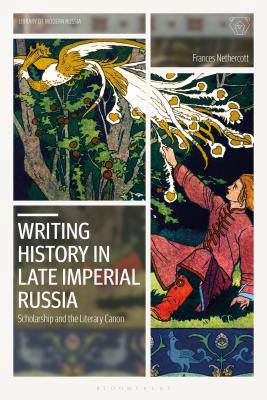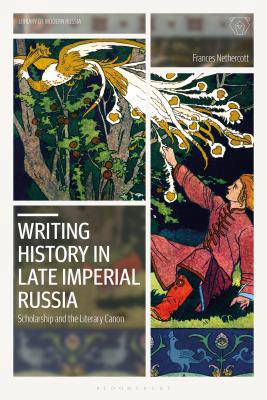
Bedankt voor het vertrouwen het afgelopen jaar! Om jou te bedanken bieden we GRATIS verzending (in België) aan op alles gedurende de hele maand januari.
- Afhalen na 1 uur in een winkel met voorraad
- In januari gratis thuislevering in België
- Ruim aanbod met 7 miljoen producten
Bedankt voor het vertrouwen het afgelopen jaar! Om jou te bedanken bieden we GRATIS verzending (in België) aan op alles gedurende de hele maand januari.
- Afhalen na 1 uur in een winkel met voorraad
- In januari gratis thuislevering in België
- Ruim aanbod met 7 miljoen producten
Zoeken
€ 254,45
+ 508 punten
Omschrijving
It is commonly held that a strict divide between literature and history emerged in the 19th century, with the latter evolving into a more serious disciple of rigorous science. Yet, in turning to works of historical writing during late Imperial Russia, Frances Nethercott reveals how this was not so; rather, she argues, fiction, lyric poetry, and sometimes even the lives of artists, consistently and significantly shaped historical enquiry.
Grounding its analysis in the works of historians Timofei Granovskii, Vasilii Klyuchevskii, and Ivan Grevs, Writing History in Late Imperial Russia explores how Russian thinkers--being sensitive to the social, cultural, and psychological resonances of creative writing--drew on the literary canon as a valuable resource for understanding the past. The result is a novel and nuanced discussion of the influences of literature on the development of Russian historiography, which shines new light on late Imperial attitudes to historical investigation and considers the legacy of such historical practice on Russia today.Specificaties
Betrokkenen
- Auteur(s):
- Uitgeverij:
Inhoud
- Aantal bladzijden:
- 296
- Taal:
- Engels
- Reeks:
Eigenschappen
- Productcode (EAN):
- 9781350130401
- Verschijningsdatum:
- 26/12/2019
- Uitvoering:
- Hardcover
- Formaat:
- Genaaid
- Afmetingen:
- 160 mm x 236 mm
- Gewicht:
- 680 g

Alleen bij Standaard Boekhandel
+ 508 punten op je klantenkaart van Standaard Boekhandel
Beoordelingen
We publiceren alleen reviews die voldoen aan de voorwaarden voor reviews. Bekijk onze voorwaarden voor reviews.









